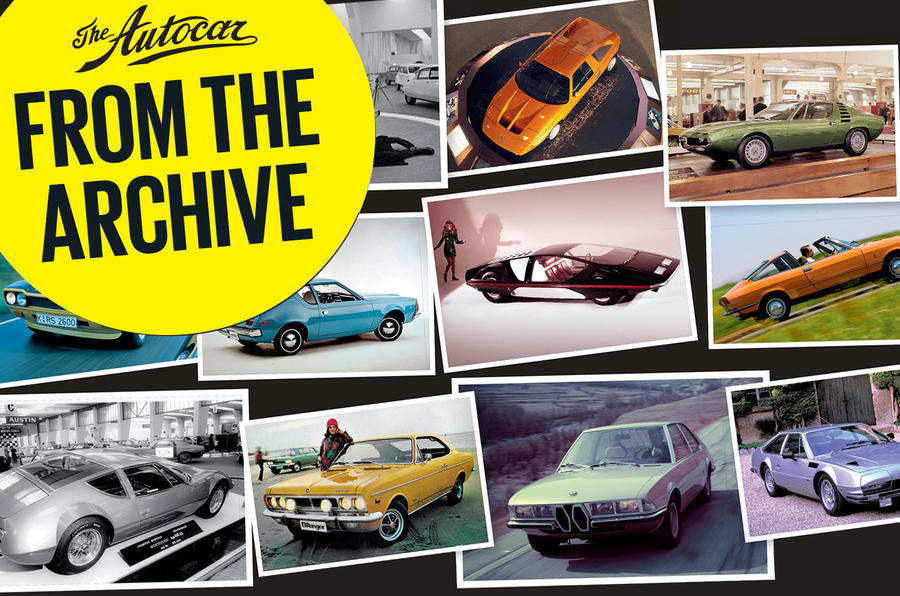After 119 years, the future of the Geneva motor show is uncertain.
At its peak, it hosted more than 1300 firms and 660,000 people. But times have changed, to the great regret of industry figures and enthusiasts.
Let’s cheer ourselves up by looking back at one of the finest Geneva shows: 1970, when ‘electrifying’ referred to the effect of multifarious new V8 coupés on petrolheads.
Usually there’s a standout star of the show, but here it’s impossible to pick. However, “without doubt the most interesting technically”, we said, was the Citroën SM. Yes, a highly innovative, very complex, gorgeous GT with a Maserati V6 engine made by a financially troubled volume brand. Mad.
“Whenever we plan a new car, we like to achieve the impossible,” explained new president Claude-Alain Sarre. “This time, the object was to produce a different type of sports car. You would not let the grocery man on the corner handle a Ferrari or a Lamborghini. But he will be able to drive the SM.”
“Ours is probably the safest and the most comfortable GT anyone could hope to build today,” added chief engineer Jacques Né.
Their claims were borne out, but the SM ruined its maker. Peugeot saved it, of course, but never again would there be a luxury Citroën.
Oh, and the whole ‘women doing yoga in dresses and high heels’ thing seen on the stand? No idea!
The latest grocer killer from Sant’Agata was the Jarama 2+2 GT, which matched its Islero forebear’s 3.9-litre V12 mechanical package with a shortened version of the Espada’s punt chassis.
As for its success, just know that it was the absolute favourite car of Ferruccio Lamborghini himself.
From Maranello was a concept “that had to be seen to be believed”: the Pininfarina-penned Modulo – an extremely low, wedge-shaped vision of the future based on the 512 S sports prototype racer.
In 2014, it was restored for Jim Glickenhaus of SCG, who actually now drives it on the road. Legend.
Another exciting GT, this one with a V8, came from Alfa Romeo: the Montreal – a production version of an unnamed concept that had appeared at Expo ’67 in Canada. That had used the chassis and 1.6-litre four-pot of the everyday Giulia, but now Bertone’s suave design cloaked a 2.6-litre V8 from the iconic Tipo 33 sports racer.





Add your comment